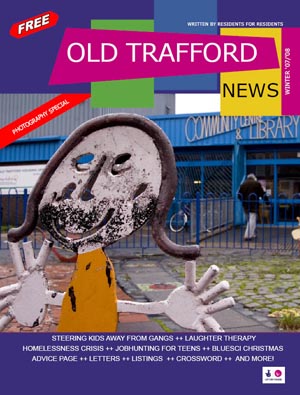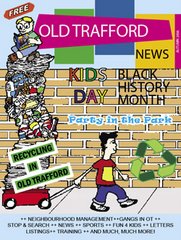OK, so we all know that it's not
really going to happen - but Gordon Brown's
suggestion that new immigrants should undertake community work is worthy of discussion.
The thinking is that voluntary work helps to embed people in their wider community; that it is a swift route to a better understanding of our society; that it is good for someone's social life, welfare and mental health. It can also be an approach to improved language and communication skills, to improved career prospects and to personal development across the board.
All of this is unquestionably true. It is true if you are a recently arrived bride from Bangladesh, and no less true if you are an unemployed steelworker from Barnsley or a moderately successful history graduate from
Fife. So of course new immigrants, like everyone else, should do some voluntary work. But it is patently absurd that they should have to.
The first flaw with the idea is that becoming a British citizen should make an immigrant more like the rest of us. Placing obligations on one section of society that are not placed on the rest of it has to be divisive. Unless Gordon Brown is going to suggest compulsory community service for everyone in the country, this would quickly become a marker between 'us' and 'them.'
Secondly, there is only one section of the community who currently can be obliged to undertake community service, and that is the criminals. Community service is a form of punishment, underpinned by the principles of reparation - those who have damaged society can be expected to repair the damage they have caused. What message does it send to our new citizens, asking them to repair the damage they have caused simply by arriving in the country? As any economist with a brain will tell you, Britain should be thanking our new immigrants, not punishing them.
Thirdly, the scheme (as described yesterday) draws no divide between people who may have been here for a decade, working in the health service, industry, commerce or even the community and voluntary sector itself; and those who have arrived this month, with no English language skills, no sense of belonging and no security. The truth is that many (maybe the majority) of new British citizens have already immersed themselves deeply in British society and their residential neighbourhoods long before they applied for naturalization.
It also needs to be said that the benefits to the individual of community service often dissolve when he or she stops being a volunteer and becomes a conscript. If you have been sent somewhere you don't want to be, you are unlikely to attain many benefits - the inevitable emotional reaction is to put your head down, shut your mouth and serve your time.
Finally, and most importantly, this suggestion fundamentally misjudges the needs and the problems of the voluntary sector. I have no doubt that when Gordon Brown and his team dreamt up this headlin... sorry, this scheme, they imagined new citizens immersing themselves in the spectacularly varied and inspiring community and voluntary sector. Politicians love visiting imaginative, innovative projects where they see volunteers turning around their own lives and brightening their communities with activism or sport, arts and media programmes. What they usually fail to notice is the extensive (and expensive) work behind the scenes in volunteer support and development. Working with volunteers - especially those with language restrictions or emotional and physical health requirements - is demanding and time-consuming work. Volunteers do not train themselves, do not appraise themselves, do not monitor their own development. Unless you can offer that type of back-up support, all we could do with these citizen-conscripts would be get them to scrub graffiti off walls and clear away shopping trolleys from grotspots. This would deliver none of the intended benefits, while breeding resentment or perhaps outright hostility. Immigrants must not become a convenient army of slave labour.
Politicians (and to be fair, their electorate) often think that all the voluntary sector needs is volunteers - and that if they sent us another million bodies every year we would be eternally grateful. In fact we wouldn't - we'd be overladen, overworked and unable to offer the services that we exist to provide. Around
90% of community and voluntary sector groups are currently desperately short of core funding to pay for the activities they are either committed to or desperate to deliver. Gordon Brown's proposal - unless held up by an unfeasibly large cash injection - would be a disaster for the voluntary sector.
So assuming Gordon Brown is not stupid (whatever else he may be) we can assume this idea will never get further than the flagpole. However it is brutally revealing of current political thinking. Want to solve a problem or make a political gesture without spending money? Shunt it across to the third sector. Want to deliver mental health care or social services
on the cheap? Give the contract to a social enterprise. Want to deliver probation services without employing probation workers? Call for the
charities The implications of this major trasformation in the British welfare state are only just
starting to be discussed.
And I've barely got started yet...






 WHO DISTURBS ME FROM MY SLUMBER???
WHO DISTURBS ME FROM MY SLUMBER???
 There isn't actually a Fairy Godmother in Aladdin. But she turned up anyway.
There isn't actually a Fairy Godmother in Aladdin. But she turned up anyway.








